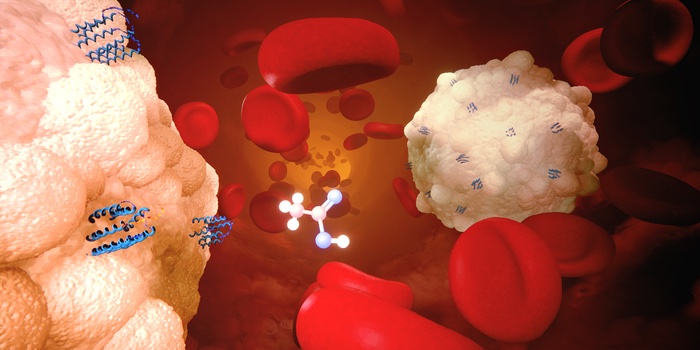Novel Approach against Severe Sepsis - Genetic Engineering & Biotechnology News

Bacterial sepsis is a life-threatening condition that arises when the body's response to an infection injures its tissues and organs. Sepsis is caused by conditions that threaten the functional integrity of the host such as microbial invasion. Among the most common causes of such a sepsis are methicillin-resistant Staphylococcus aureus bacteria (MRSA) that have developed resistance to many common antibiotics. Now, a team of researchers report they have devised a new strategy against sepsis.
Their findings are published in the journal Communications Biology in a paper titled, "Acetate sensing by GPR43 alarms neutrophils and protects from severe sepsis." The study is a collaboration of scientists from the Cluster of Excellence "Controlling Microbes to Fight Infections" (CMFI), the Interfaculty Institute of Microbiology and Infection Medicine Tübingen (IMIT) at the University of Tübingen, and the German Center for Infection Research (DZIF).
"Bacterial sepsis is a major cause of mortality resulting from inadequate immune responses to systemic infection," wrote the researchers. "Effective immunomodulatory approaches are urgently needed but it has remained elusive which targets might be suitable for intervention. Increased expression of the G-protein-coupled receptor GPR43, which is known to govern intestinal responses to acetate, has been associated with sepsis patient survival but the mechanisms behind this observation have remained unclear."
The researchers led by Andreas Peschel, PhD, professor of microbiology, University of Tübingen and Dorothee Kretschmer, PhD, University of Tübingen, were able to show that the body's immune defense against staphylococci is strengthened by administering the acetic acid salt sodium acetate. In experiments with mice that received acetate via their drinking water or an injection, the course of bacterial sepsis was significantly improved.
"In our study, we were able to investigate for the first time in detail the effects of binding the acetate to neutrophils. It seems to be an amplifier that 'wakes up' the granulocytes, so to speak, and puts them on alert," Kretschmer said. "Acetate has a regulatory effect through the activation of the GPR43 receptor so that an adequate and targeted endogenous immune response can occur on several levels."
The new findings suggest that the direct application of acetate to patients receiving enteral nutrition could become a therapeutic option.
"In the case of a subsequent sepsis caused by infection with staphylococci, the bacteria could be killed faster and more efficiently, thus preventing a fatal course," Kretschmer explained. "The mice recovered more quickly, evident for instance by a faster weight gain." As Katja Schlatterer, the study's lead author from CMFI reported: "Interestingly, we were able to observe the same effect when we administered acetate only after the onset of sepsis. This led in the same way to an improved immune response and infection clearance."

Comments
Post a Comment